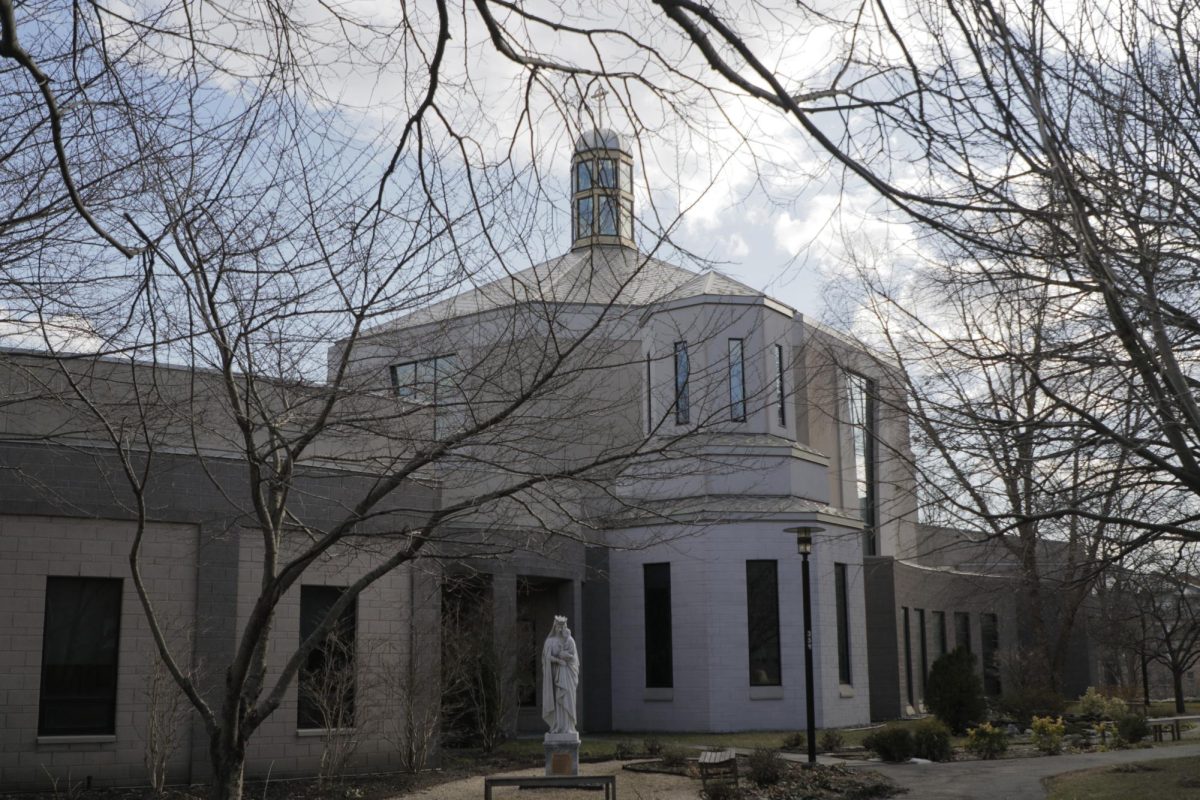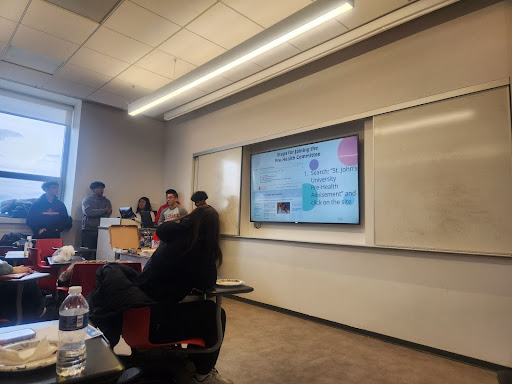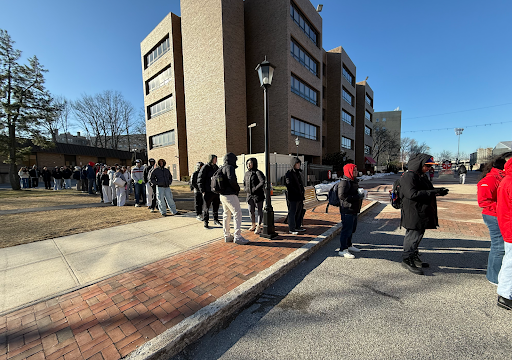Earlier this month, St. John’s welcomed scholar and human rights activist Dr. Richard E. Lapchick back to campus for a seminar on “The Power of Sports and the Compelling Need for Diversity and Inclusion.”
Lapchick gave an impassioned lecture to a crowd – comprised mostly of athletics department staff, faculty, and students – inside Marillac Auditorium.
Also in attendance was esteemed St. John’s coach Lou Carnesecca.
Lapchick, often regarded as “the racial conscience of sport,” discussed his lifelong commitment to using sport as a vehicle for social change. He centered the discussion around the grave social and economic injustices that beset modern athletics and society at large.
“Why do I stay in the world of sport and use sport? Because we have something in this world that I think nobody else has,” Lapchick said.
Lapchick explained how sport is in many ways a microcosm of society in that it has the power to transcend all sorts of religious, socio-economic, sexual and racial barriers.
“We call it the miracle of the huddle and once you get in that huddle, I can’t give any other place in this country where it suddenly doesn’t matter if you’re African American, white, Latino, Asian American, Native American or Arab American, it doesn’t matter if you’re Protestant, Catholic, Buddhist, Sikh, Jew, Hindu, Muslim, young or old, gay or straight, come from a rich family or a poor family, the team can’t possibly win if you don’t pull together as a team,” Lapchick said. “Imagine if we take that spirit of the huddle and put it in the rest of our institutions of higher education, corporate America, faith-based America. Pick the sector and put it in it and it’s going to be a different world.”
The St. John’s graduate is currently the Chair of the DeVos Sports Business Management Program at The University of Central Florida, which focuses on providing students with the skills necessary to achieve success in the ever-changing industry of sport. It has been named one of the nation’s top five programs by The Wall Street Journal, The New York Times, Forbes and ESPN The Magazine.
In addition to the various positions he holds, Lapchick also serves as the Director of The Institute for Diversity and Ethics in Sports (TIDES).
The Institute was founded by the DeVos Program in 2002, shortly after Lapchick was hired as Chair.
TIDES publishes an annual assessment called the Racial and Gender Report Card, which studies race and gender diversity in amateur, collegiate and professional sports in the United States.
It was created by Lapchick in the late 1980s.
Lapchick’s activist work began in the 1970s, when he started fighting apartheid and spearheaded the boycott of the South African participation in international sport events. In 1993, the Center for the Study of Sport in Society, which Lapchick helped establish in 1984, started TEAMWORK-South Africa. The purpose of this program was to improve race relations through sports and to assist with sports development in post-apartheid South Africa.
He was invited as a special guest to Nelson Mandela’s inauguration in May 1994. He also attended the former South African president’s funeral service in 2013.
Laphick’s father, Joe, was a Hall of Fame basketball coach with St. John’s and the Knicks, who helped integrate the N.B.A. when he signed Nat “Sweetwater” Clifton in 1950. As a result of his father’s groundbreaking decision, Lapchick experienced hate-fueled attacks.
The 73-year-old activist shared a disturbing anecdote during the seminar about the time he was brutally assaulted in his office. He suffered a concussion, liver and kidney damage and a hernia.
The attackers carved the word “n—–” in his stomach with a pair of scissors.
Lapchick’s dedication has drawn the attention of many around the country who follow his work.
He’s received nine honorary degrees and his work has been recognized by many national organizations.
In addition to the numerous awards and accolades he’s received throughout his life, Lapchick was named the NCAA’s Champion of Diversity in 2017.









Roy H. Cornely • Mar 21, 2021 at 8:35 pm
I often compared anti-racism experiences with Dick Lapchick during Cab rides from and to the airport at the NCAA Conventions at Memphis (the old Opree) I was the FAR for a large public University and Dick for a small private College – – we both were dedicated Knick and Joe Lapchick fans – – – and both were dedicated to revealing and eliminating racism in sports and within the NCAA structure— as white males. Society has a long way to go – – – but as I only learned this year Dick Lapchick almost lost his life in his office at his University and was continuously focused on organizing educational ant-racism events. I am honored to have shared anti-racism methods with him circa 2000 and to learn about his activities during the last twenty years. Your presentation of these activities is an incentive to fight racism in our Society with the dedication of Richard Lapchick. Thank you! Roy H Cornely
Denise Puleri • Feb 5, 2019 at 1:49 pm
Great writing by Justin Boniello….Looking forward to more reads. Thanks